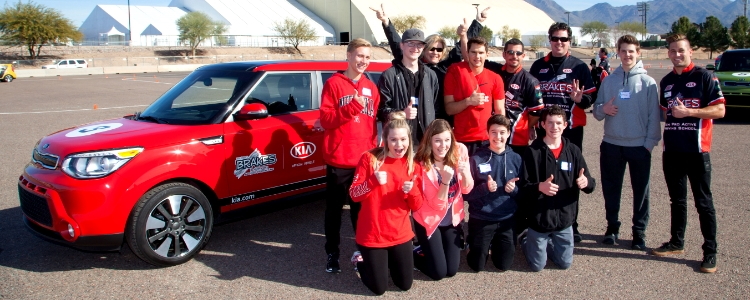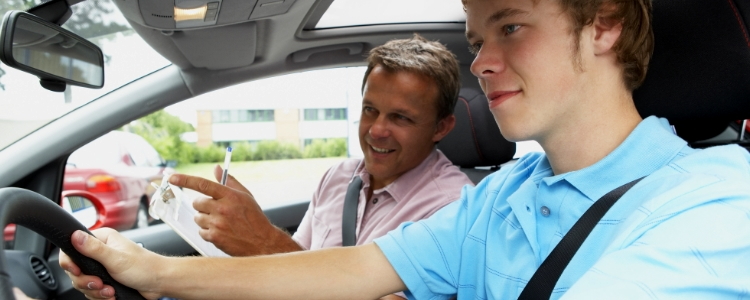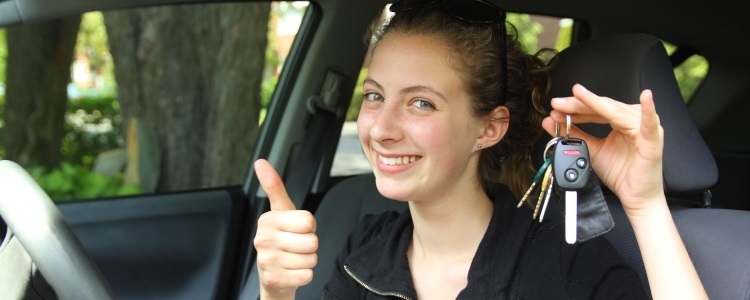If you have a teen that's itching to get behind the wheel, deciding what to do could be particularly tough this year due to COVID-19. School districts are struggling to come up with plans for a safe return to in-person learning, and losing the ability to rely on others to supplement your child's education could take a toll in several ways, including driver's education.
Teens and Required Road Time
 Currently, only 32 of the 50 U.S. states require a driver's education course of some kind before a teenager is eligible to take the written exam which qualifies them to become a licensed driver.
Currently, only 32 of the 50 U.S. states require a driver's education course of some kind before a teenager is eligible to take the written exam which qualifies them to become a licensed driver.
If your teen doesn't need a lot of drive time, you may have less stress than parents who are struggling between teaching their teen themselves, or having them mask up to take driver's education with a professional.
But do you want your teen talking to an instructor in a vehicle with notoriously poor airflow? If not, are you qualified to teach your child how to drive? Years of driving can actually lead to some bad habits behind the wheel. Some of these habits you may not want to pass down to your young driver(s).
Unlearning Bad Habits
If you've been driving for more than a decade, there's a good chance you've picked up some habits, good and bad, over the years. As you take steps to teach your teenager to drive, make sure you're imparting wisdom for the road, and not unsafe habits.
Here are some common habits many drivers can fall into that are best avoided when training a new driver:
- Going with the flow of traffic – You don't want to necessarily be the driver that holds up a line of traffic, but if you're used to driving the same route for your commute, you may be guilty of driving the same speed as the cars around you, even if that speed is 10 miles or so over the speed limit. It's important to teach teens to be on the lookout for speed limit signs, and to obey them, especially if you're teaching them on a road that you drive frequently. Don't take for granted that the speed limit hasn't changed.
- Rolling stops – Just pausing at a stop sign seems logical when there's no one around, right? Though that's just what many people do, it's actually a highly illegal practice that could land you a ticket if you get caught. The same goes for stop lights, even if you're turning right. You must come to a full and complete stop at every stop sign and red light while driving.
- Forgetting pedestrians have the right of way – Do you defer to pedestrians? You should, they legally have the right of way when it comes to crossing the road. If there are walkers, runners, bikers, or joggers waiting at a crosswalk, they also have the right of way if you're making a right hand turn after stopping. It's a lawful best practice to wait for the crosswalk to clear before proceeding.
- Not using turn signals – Do you signal when you turn? How about when you're changing lanes on the highway, or passing someone on a two-lane road? Turn signals are more than mere suggestions, and can help avoid accidents when used correctly and paid attention to by other drivers.
- Not watching out for road signs – Do you know your road signs? Sure, a speed limit sign or a stop sign are easy to spot, but what about the less common one such as light rail transit crossing signs or temporary traffic control signs? It's important to watch the road, read all the signs, and don't rely solely on your GPS or in-vehicle navigation system because you never know when something may change.
- One-way streets, four-way stops, and roundabouts – Though some of these driving situations are more common than others, they’re also becoming more and more common. It's a good idea to know the rules of the road for roundabouts, four-way stops, and one-way streets so your teen isn't blindsided when they encounter them for the first time.
Be sure to brush up on your behind-the-wheel skills before you try to teach your teen to drive. If you decide not to teach them yourself, make sure they mask up and bring their hand sanitizer with them, just like they would to any other class or acceptable social situation.
Need Another Vehicle in the Family?
After training your teenager to drive, it's important that they have a safe and reliable ride on the road. If you're looking for a car for your child, or searching for another family vehicle for yourself, we want to help.
Here at Auto Credit Express, we've cultivated a nationwide network of special finance dealerships that are signed up with lenders that assist people in many different credit situations to get into the cars they need.
If you're ready to get shopping for your next auto loan, start here by filling out our fast, free, and no-obligation car loan request form. We'll get right to work finding you a dealer in your area where you and your teen can go to get started!
















